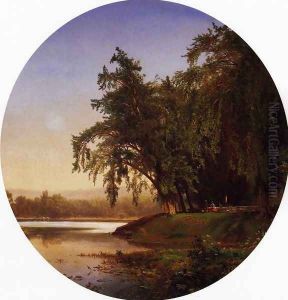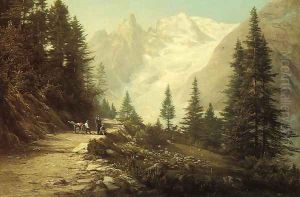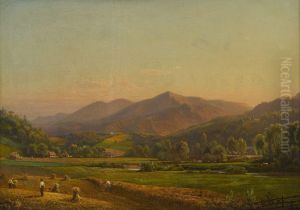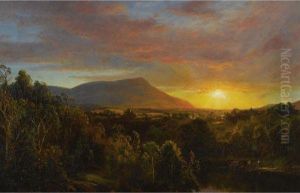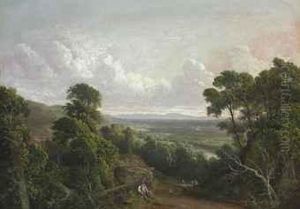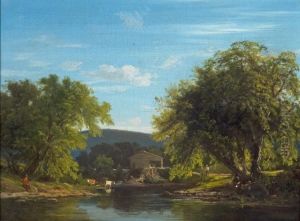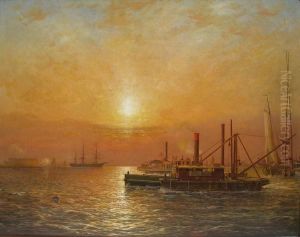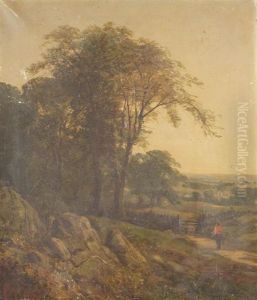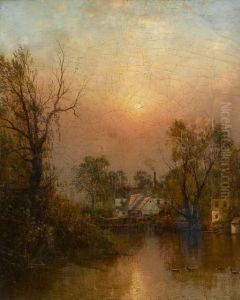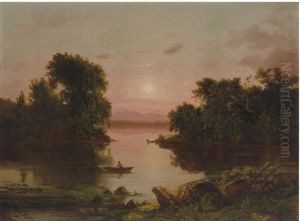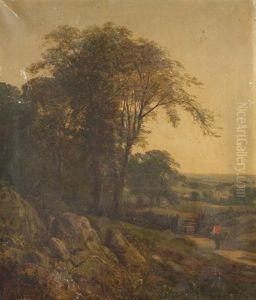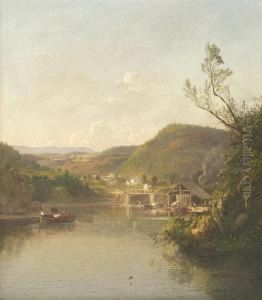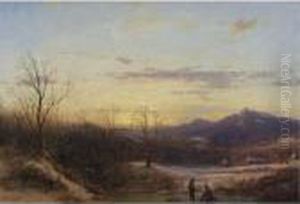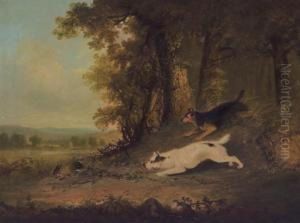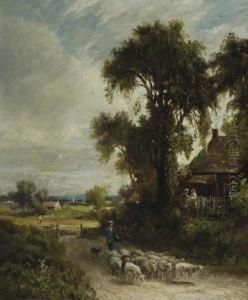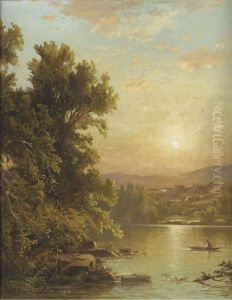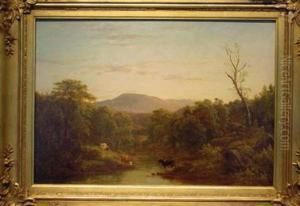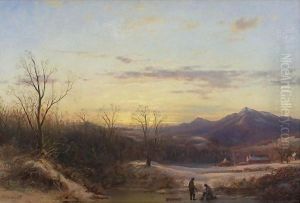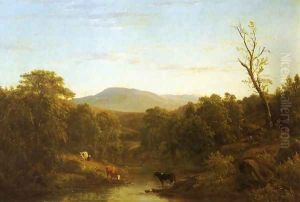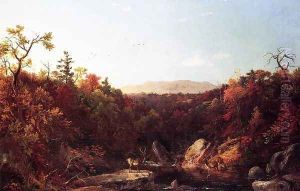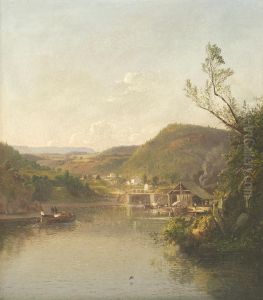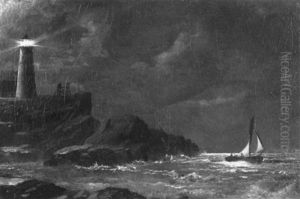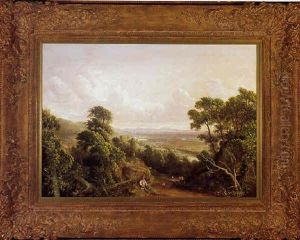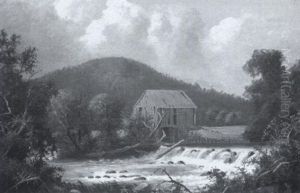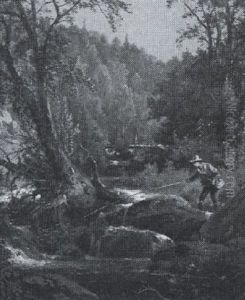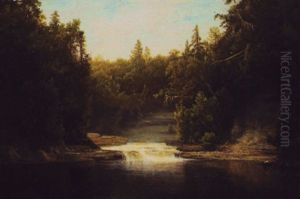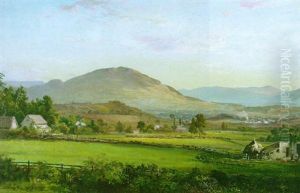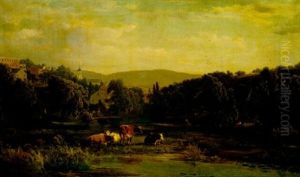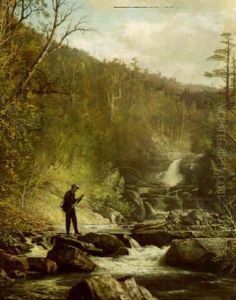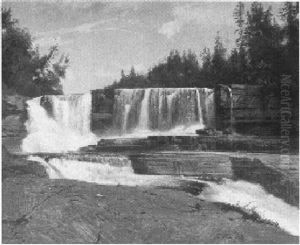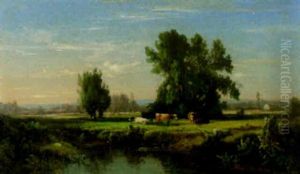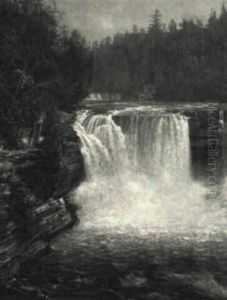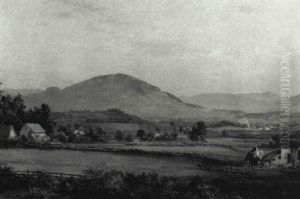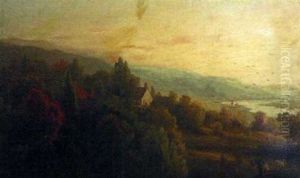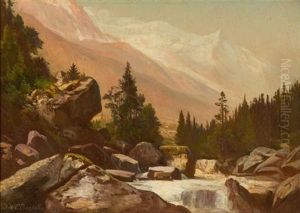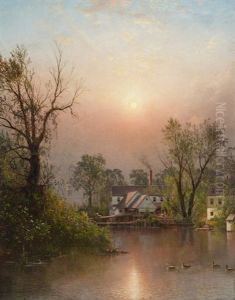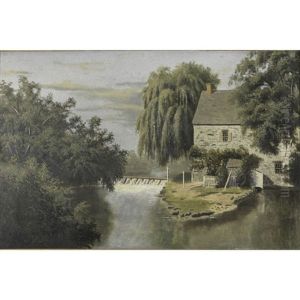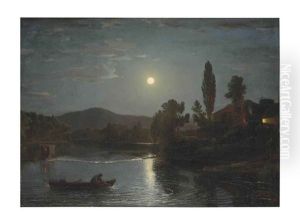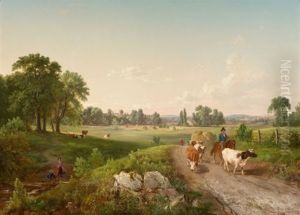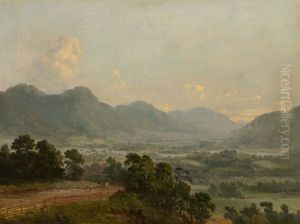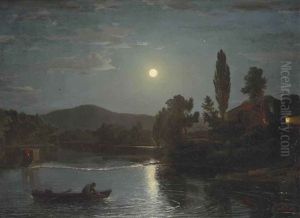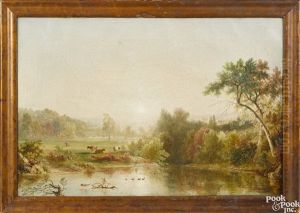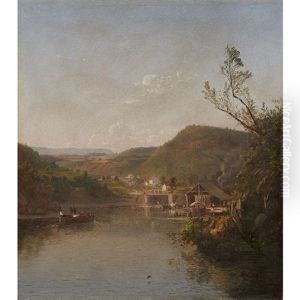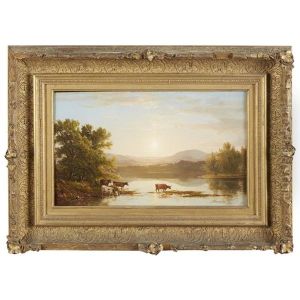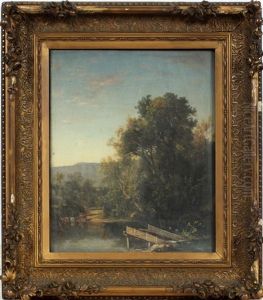Dewitt Clinton Boutelle Paintings
DeWitt Clinton Boutelle was a 19th-century American painter known for his landscapes and historical scenes. Born in Troy, New York, in 1820, Boutelle developed an interest in art at a young age. He was influenced by the Hudson River School, a mid-19th century American art movement embodied by a group of landscape painters who were inspired by romanticism and focused on depicting the natural beauty of the Hudson River Valley and the surrounding area.
Boutelle studied with a number of prominent artists of the time, including the well-regarded landscape painter William Hart. His work was characterized by a meticulous attention to detail and a reverence for nature, common themes among Hudson River School artists. Boutelle's paintings often captured the American wilderness with a sense of tranquility and majesty, reflecting the era's optimistic view of westward expansion and the sublime qualities of the natural world.
His historical scenes were also notable, as they provided a visual narrative of American history, particularly the early exploration and settlement periods. Boutelle exhibited his work at various institutions such as the National Academy of Design, where he became an associate member in 1849.
Despite his talent and contributions to the American art scene, Boutelle did not gain the same level of fame as some of his contemporaries like Thomas Cole or Frederic Church. Nevertheless, his works are still appreciated for their beauty and historical value, and they can be found in various collections and museums in the United States.
DeWitt Clinton Boutelle passed away in 1884, leaving behind a legacy as a skilled painter who captured the essence of the American landscape and spirit of his time.
